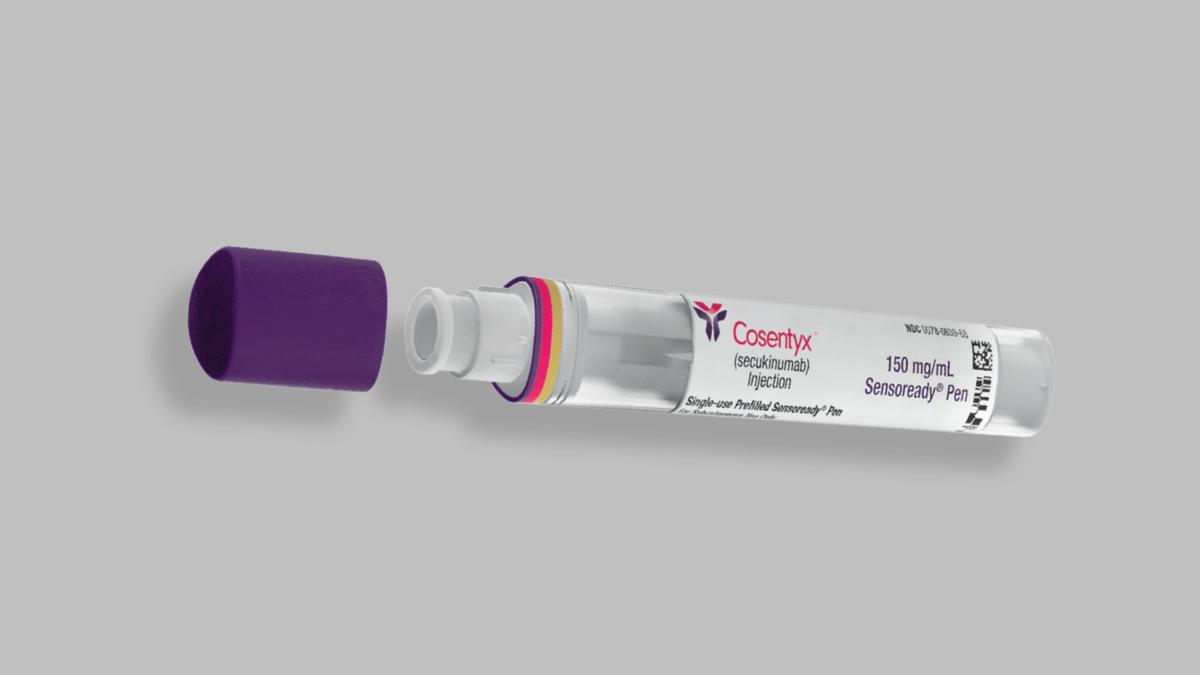Novartis trumpets long-term data for Cosentyx in psoriasis

Novartis is hoping that new real world data will help its psoriasis drug Cosentyx stay ahead of rivals.
The new findings presented over the weekend show the drug can maintain quality of life in the long term and clear nasty scalp plaques.
Cosentyx has already achieved blockbuster status but is behind Johnson & Johnson’s established psoriasis Stelara (ustekinumab) in terms of sales, with the latter generating more than $4 billion worldwide last year.
AbbVie’s Humira (adalimumab) is also often used in psoriasis and will experience cheap biosimilar competition later this year in Europe – making the market for psoriasis drugs even more competitive.
In an interview with pharmaphorum, Eric Hughes, global development unit head for immunology and dermatology at Novartis, said the data makes the case for Cosentyx as a long-term treatment for psoriasis, and to treat scalp plaques that are difficult to treat and can cause irritation and bleeding.
[caption id="attachment_24190" align="alignnone" width="168"] Novartis' Eric Hughes[/caption]
Novartis' Eric Hughes[/caption]
“The data are important for the patients and the prescribing physician. Two thirds of the time patients don’t have any sign of the disease in terms of quality of life after five years.”
The data further validates IL-17 as a way of treating psoriasis, said Hughes. “If you take out IL-17 you can affect all areas of the disease,” he said.
Cosentyx belongs to a newer class of drugs that inhibit IL-17, and Novartis is aiming to encourage doctors to use it with longer term data showing that its benefits persist after five years, as well as new data for treating scalp plaques.
Lily’s Taltz (ixekizumab) IL-17 got to market after Cosentyx, and another IL-17 drug – brodalumab, was initially developed by AstraZeneca and Amgen, but sold off to various companies in different regions after an unexpected link with suicidal ideation in clinical trials. Valeant markets brodalumab in the US under the brand name Siliq.
Results from the SCULPTURE patient-reported outcomes study showed that two thirds of moderate to severe plaque psoriasis patients treated with Cosentyx reported no impact of skin disease on their quality of life through five years.
This was measured using a standard questionnaire to evaluate the impact of skin disease.
Findings from the 126 patients completing the five year study extension phase also showed that absolute Psoriasis Area Severity Index scores, which provide an indication of severity of disease after treatment, were maintained after five years in most cases.
Scores under three indicate successful treatment – after year one 74.1% of patients had PASI scores of three or below, and at five years this figure was 75.4%.
At year one 67.9% of patients had PASI scores of two or lower, while at year five this figure was 66.4%. At year one 58.6% of patients had PASI scores of one, while at year five the figure was 53.3%.
Results from the separate SCALP study, involving 102 patients with moderate-to-severe scalp psoriasis, showed a significantly higher proportion of patients receiving Cosentyx had 90% plaque clearance at 12 (52.9% vs 2%).
There were further improvements up to week 24, where 58.8% of patients achieved 90% clearance.
Novartis want to press home its advantage with Cosentyx, and hope to one day gain approval for the drug as a disease-modifying treatment. This would see it used in early stages of the condition, and allow some patients to be completely free of the disease.













